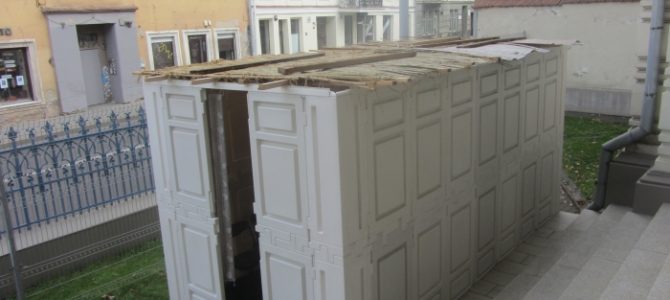Despite restrictions because of the corona virus, the Choral Synagogue in Vilnius has constructed the traditional sukka there to celebrate the holiday of Sukkot. Traditionally called the Feast of Tabernacles in English, Sukkot is better translated as the Day of Tents in modern English. This year it began October 2 and it lasts for seven days. The idea is to “dwell” or spend time in the tent or temporary structure during each day of the week-long holiday. It is traditional to handle the etrog, a fruit in the citrus family, and to wave a palm frond inside the sukka, or dwelling, and to eat and celebrate, remembering the past when the Hebrews lived in tents after the exodus and liberation from Egypt. The Torah says one should wave the branches and fronds of three pleasant trees during the holiday, including palm fronds, willow branches and the branch of a leafy deciduous tree which the Talmud specifies is the myrtle. The trees and the etrog together constitute the four species. The palm fronds are first made into a bundle which becomes the first element, to which are added two willow branches, then three myrtle branches in a specific pattern, This three-fold branch and etrog are waved around on each day of the seven days by observant Jews in adherence to Leviticus 23:40. Visitors to the sukka are also supposed to have a good time there.
The sukka at the Choral Synagogue is only open during scheduled prayer services as part of entry restrictions designed to curb the spread of the corona virus. Please check prayer service schedules or call ahead if you intend to visit and spend time in the sukka.






